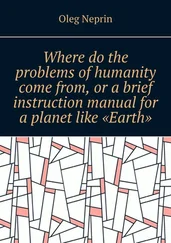^^^^^^
“I would like to understand you, Alex, sincerely. You are a very peculiar individual. In all my years of experience here in the Bureau of Human Affairs, I have never met a terrestrial like you.
“Pardon me if my curiosity seems excessive. I am not a government official all the time. I also have my family, my hobbies… and one of them is human nature.
“But, tell me, Alex… Don’t you feel like… like a deserter? Like a traitor to your race and to your planet?”
^^^^^^
Yes, I am fully aware …
But what am I supposed to do about it?
A person has to live, right?
October 1, 1998.
Some sociologists feel that the best sign of a culture’s level of civilization is how much distance it puts between itself and its own excrement.
Some ecologists feel that the best sign of a culture’s level of civilization is how well it recycles its own excrement.
Some individuals feel that the best sign of a culture’s level of civilization is how easily the excrement it produces can be put to good use.
Those people are divers.
There’s nothing new about them.
They didn’t first appear with Contact.
They seem to have always existed: whether among Sumerians and Egyptians, or among Greeks and Romans, there have always been human beings who live from putting to good use (that is, more or less recycling) the garbage that other human beings produce.
They’ve also been called ragpickers, junkmen, and by many other names. It is one of the world’s oldest professions (or cults, as some term it).
The truth is, they don’t make their living from trash but from stuff that is still useful or easily mended, but that other people have thrown away as if it were trash because they don’t have the savings mentality, or the right skills, or the time.
All modern civilizations, swept up as they are in the principle of “use it and toss it,” squander huge quantities of labor in the form of objects that still almost work. But it’s easier and cheaper to manufacture new stuff than fix the old. Even when the new stuff is imported from stars hundreds of light-years away, as is the case for Earth.
Divers, of course, don’t see things this way.
Maybe that’s why the Earth is now full of divers.
They dive into garbage containers, searching for pieces of wood, bits of rare metals, mechanical parts, cybernetic circuit boards that have stopped working, discarded fragments of robotic systems. Almost everything interests them.
They eat the food and wear the clothes that other, more scrupulous humans throw away. It’s good enough for them.
They look like beings from another world: lost in thought, oblivious to the gangs of kids making fun of the way they smell and the rags they wear. Focused on the difficult art of distinguishing between real trash and what can still be used. Some mutter strange chants while their fingers rummage skillfully through the containers, picking out a few things and leaving the rest according to criteria that they alone know. Until they move on, at their slow pace, with all their bags of treasure, to find another goldmine in the guise of a pile of trash, where again they will recover a wealth of wonders.
There are two main types of divers.
The first are those who sell their finds to small-scale raw material recyclers, who are merely divers who’ve gone into the wholesale business and have therefore climbed up a step on the pyramid of the garbage-heap’s dead ecology.
These are the divers who still understand the meaning of money. Sometimes they live in tiny apartments, watch holonet programs on small holoscreens, follow Voxl games… They still have one foot in the world, even if they mumble about their past glories and think of an impossible tomorrow. People can still understand them. The work they do, though repulsive and poorly paid, is a job.
The other divers are very different.
They never sell anything to the recyclers. They prefer to keep their finds. And then, in their refuges under bridges or in dark alleys, they assemble, tie, solder, rejoin parts of old computers with bits of rusty old tubing, pieces of rocket casings with upholstery ripped from old aerobuses. They always smile while they work, as if they can see past the discards that they handle so lovingly. They sweat and toil for hours and hours, their eyes gleaming with hope, and at the end they carefully push the results of their efforts aside and start over again on a new assemblage.
No one knows whether they believe they are creating art. Some art dealers have tried to sell these divers’ exotic, chaotic contraptions as “installations,” but the sophisticated xenoid public finds trash incompatible with the concept of art. End of story.
No one knows whether they believe their strange Frankenstein creatures will work somehow, some day. Or what they might expect them to do. Perhaps be vengeance machines, removing the xenoids from Earth forever and returning it to humans. Or perhaps they would simply destroy all civilization, including human civilization, in order to get rid of all the trash and shame and let some other species—primate or otherwise—start over from scratch. Or maybe they’re hoping that their monstrosities will achieve such a major breakthrough for Earth’s stunted technology that xenoid domination will fall before man’s intellectual dynamism once and for all.
No one knows… and very few wish to find out. Or have time for all this. There are much more important things to do. Such as making money. Such as surviving.
And they keep on going, tirelessly joining fragments, muttering their incomprehensible chants, forgotten by the world.
From time to time a very old one disappears. Simply isn’t seen around anymore, and it’s almost as if he had returned to the bosom of his beloved trash pile. But other, younger ones always come along to take his place. Their skin less wrinkled, their gums more full of teeth, but the same lost stare in their rarely bright eyes.
Older people walk past them and sadly shake their heads. Sometimes they stop mischievous kids from beating them and stealing their “treasures,” and they mumble, “poor crazy people!” They pretend that they don’t see the divers, but they have strange expressions on their faces.
Could it be because they somehow realize the divers possess something that they themselves have already lost forever?
The Crew
Three of them.
An ideal number.
Two men and one woman.
Or, even more precisely, two male humans and one female human.
The female is Friga.
Friga
Friga doesn’t much resemble the usual idea of “what a woman should be.”
Isn’t slender with swaying hips, long legs, and smoothly curved breasts.
Doesn’t have a heart-shaped mouth, doll-like eyes, and huge ovaries.
Friga has skin as dark as ebony and pearly white teeth. She’s six foot two and two hundred pounds of muscles bulked up by the same illegal steroids that atrophied her ovaries to the size of beans after she gave birth.
A jaw like a concrete block, and a legendarily bad temper.
What you call a real butch or virago.
But those who know how she reacts to those words would never risk the consequences.
The last guy who did will never risk anything again. Ever.
Friga isn’t a whole-hearted lesbian. It’s just that she finds it harder and harder to find a man who would risk carrying on even an occasional relationship with her.
And since some women find her desirable, and she’s never been too choosy…
Friga has no visible means of support, aside from crime.
Читать дальше












